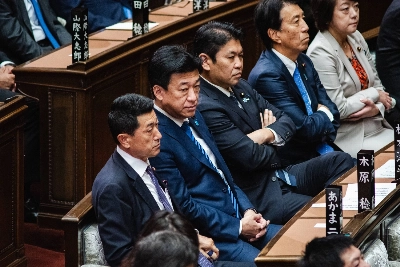It has been a disheartening couple of weeks for hamburger juggernaut McDonald's. First came the news that McDonald's Japan, once on a seemingly unstoppable upward trajectory, will post a net loss this year for the second year in a row. Still, that was a regional headache, for which company officials had both excuses and remedies. McDonald's worldwide operations took a more challenging hit last week with the revelation that the latest edition of Merriam-Webster's Collegiate Dictionary has added a new word, "McJob," which it bluntly defines as "a low-paying job that requires little skill and provides little opportunity for advancement."
McDonald's operates some 30,000 restaurants around the world, with about 400,000 employees. On those workers' behalf, even the ones who don't ring up orders, flip burgers or wipe tables, the corporation is refusing to take the new definition lying down. In fact, the man with the top McJob, CEO Jim Cantalupo, has notified the dictionary's publishers that it is inaccurate, insulting and probably illegal.
McDonald's may win in court, on the grounds that it had already trademarked the plural "McJOBS," the name of its own job-training program. But it would be a hollow victory at best. If "McJob" has already entered the language, it can hardly be declared illegal, let alone nonexistent, whether it's in the dictionary or not. Merriam-Webster isn't staking a claim to the word, or authorizing it; it is simply keeping track of what people sayit is probably neither. Entry-level jobs at McDonald's do require little skill and don't usually open doors to McManagement. But so what? There is a place in the wide world of work for such jobs: as first-time work experience (if only so employees can learn they should go back to school and reach higher); as a source of much-needed extra cash for high-school or college kids; or as a bridge job for the temporarily jobless. It's honest work, it pays what it's worth, and it represents a big slice of the job market.


















With your current subscription plan you can comment on stories. However, before writing your first comment, please create a display name in the Profile section of your subscriber account page.